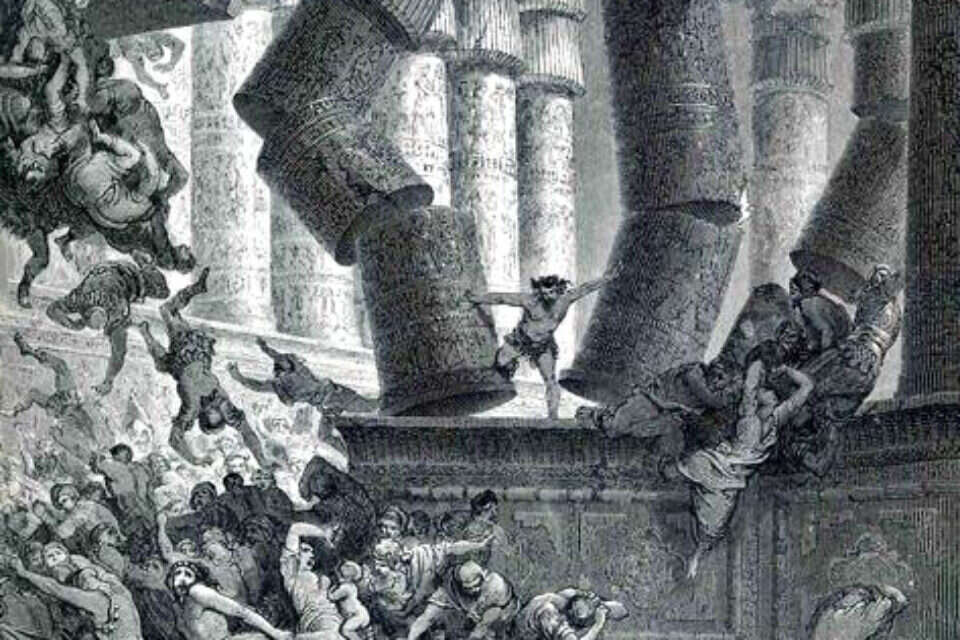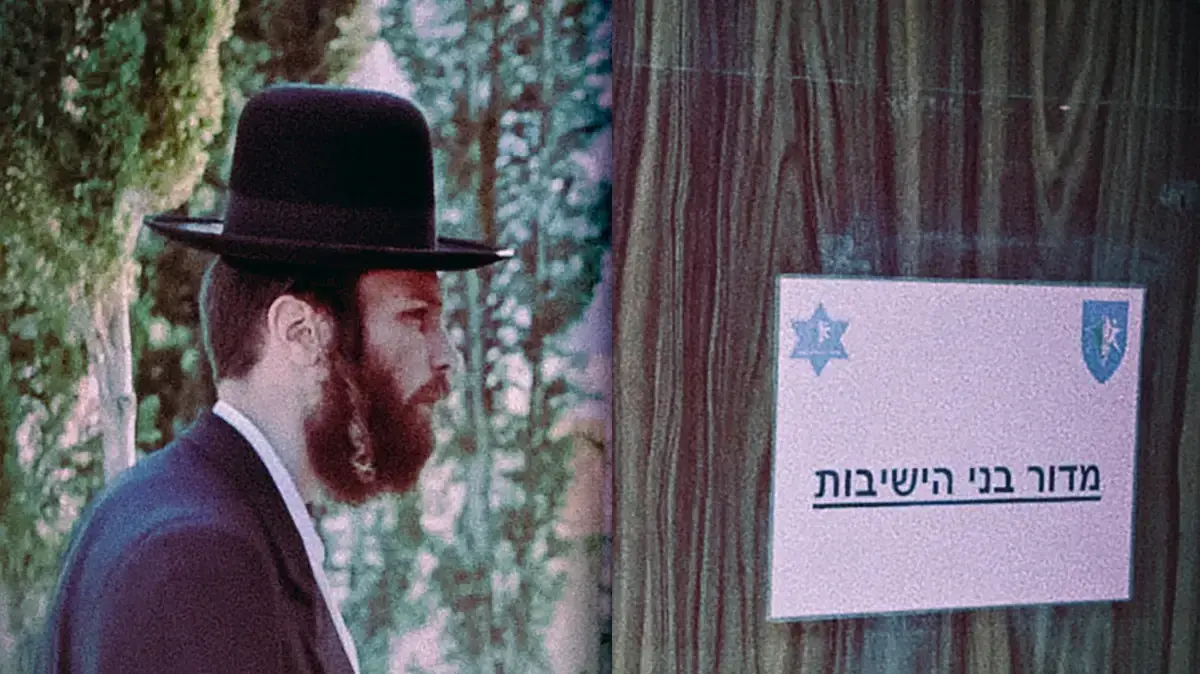1. Here is what former Chief Education Officer Nehemiah Dagan proposed this week: "The current stage: demonstrations, the next stage: turning the demonstrations into a protest that will neutralize all members of the coalition... That they won't be able to work. The next stage: paralysis of the economy, which will lead to civil war." And after his confidence, he qualified: "If the Bibist-Messianic wins the battle, all these stages will be skipped and we will reach a direct and immediate war with them."
On March 20, Dagan wrote to Alon Ben David: "Go back to Germany 1933. There, too, there were Dichters and Galants and Barkats and Yuli Edelsteins. Good people. But there was one man - Hitler - and next to him deranged fanatics like Goebbels and Gering. And all these good people were frightened by the fanatics and mostly kept silent. And what happened." The appalling parable is clear. The pathology of the man represents a phenomenon. And more of his pearls: "Herzl dreamed and did. Weizmann, Bialik, Ussishkin, Sokolov... Jabotinsky and Yair of Lehi and Ben-Gurion and Rabin... And millions who dreamed for 2000,6 years... and <> million burned. These were all the builders. And one man comes along – Bibi – and tries to destroy everything." Here, all of Jewish history through the ages is on one side, and opposite it is the anti-Christ, the greatest demon of all, Netanyahu. What a childish perception and moral disgrace. And yes, ingratitude too. And this man purported to educate our soldiers.
The ultra-Orthodox are replacing the settlers as perceived by some of the public as threatening the future of the state. Had Italy used a percentage of the intensity of the texts we hear against them, it would have been accepted as an anti-Semitic incident
2. Nehemiah Dagan as a parable. For about a decade or so, I have been arguing that there is a group among us that chose the "choice of Samson," that is: if it does not lead the state as it did before for many years, during which Nehemiah Dagan and his social circle were at the helm of the Zionist ship, and if the state no longer obeys the imaginary basket of values they were designated for it, then their lives will die with the Palestinians, and a civil war can be declared (note that he does not use the term "civil war").
Such terminal expressions have accompanied Zionism since the dawn of its birth. A refined expression of this is found in A.B. Joshua's story "Facing the Woods" (1963). The protagonist of the story - a detached intellectual who worked in the JNF forests - helps set the forest on fire together with a local Arab and his daughter. The fire was intended to expose the past: the ruins of an Arab village abandoned during the War of Independence. Even then, before the "occupation," Yehoshua exposed the guilt feelings of parts of us, which fueled the desire to set fire to the Zionist enterprise and return to exile, because in their opinion it was impossible to reconcile the establishment of the Jewish state with what they perceived as an injustice done to the Palestinians.
3. The great victory in the Six-Day War "redeemed" them for a moment from the feeling of guilt, because they could place the blame of the occupation on the parts of the country liberated in June 1967 and purify their conscience. The fact that almost no Arab distinguishes between this occupation and the establishment of Israel in general did not change much. The war for the identity of the people was directed to the geographical level: we will share the land, we will establish a state for the Arabs of the country on the back of the mountain and in Gaza, and we will come to Zion the Redeemer.
In those decades, the greatest enemy of liberal Israel was marked by the demonic image of the settler. Messianic longings, which for many centuries had preserved the hope of returning to Zion, became a derogatory word sprayed at the pioneers of the mountain: "Christians." In their view, the settler delayed the redemption and prevented with his body the coming of peace (the substitute for the Messiah). The terms "Land of Israel", "homeland" and "land" represented the regions of the Bible, the cradle of our people's nationalism, along with the consolidation of faith and religious identity. Our return to Jerusalem released from the bottle the "religious demon," messianic spirits that overwhelmingly restored Old Jerusalem, the religious component that "threatened" the Zionist enterprise.
An example of this can be found in Meir Shalev's excellent novel, "Esau" (1991), which just before the Oslo Accords summed up a cultural trend: the flight from Jerusalem, as a result of the terrible irrational fear of it. "The city was piling up on my mother's shoulders, the hatred was growing within her," Shalev describes the attitude of the family's mother, Sarah, who declares, "We're done with the sloppi," and runs away from her.
Protest march in Bnei Brak, photo: Gideon Markowitz
4. The Oslo Accords were an opportunity to get rid of this heavy burden. Together with the great renunciation of parts of the land and the establishment of an independent Palestinian state, they hoped to put the religious genie back in the bottle and return to "sane normalcy." But the Oslo process failed and exacted a heavy price. In order to conclude the process, we had to make a historic attempt to realize the vision of normalcy: in the summer of 2005, we left the Gaza Strip, destroying the Jewish communities and exhuming our dead from their graves. The result was not peace, but a terrorist entity enslaving its residents under a semi-Iranian dictatorship and conducting regular rounds of warfare with Israel.
As time passed, Israelis realized that there was no partner for peace on the other side and that there may never have been, except in our imagination. The vision of a Palestinian state has faded in the meantime, and the Netanyahu governments have come to power, giving us the best decade in our history so far. But the struggle for the identity of the people living in Zion has not stopped. He switched targets. Two sociopolitical streams have regularly joined the Likud (with occasional exceptions): Religious Zionism, especially the settlements in Samaria and Judea, and the ultra-Orthodox parties. Instead of the settlers, the ultra-Orthodox were now found as demons, and were presented as threatening the Zionist vision and the future of the state. After all, they represent the other side of the coin of our identity: the religious component. Had only one percent of the intensity of the texts heard against them been used in Italy, it would have been received with great shock as an intolerable anti-Semitic incident.
5.Let's go back to the grain. It is important to be shocked by his hateful remarks, so as not to normalize this disturbed discourse. Still, in his defense, he claimed that he wrote his words not out of hatred but out of fear. This is a claim worthy of consideration, and I will briefly repeat what I have elaborated on in the past: When Alterman describes in "Joy of the Poor" the relationship between the maiden and her dead father living within the besieged city, he presents a sick symbiosis between them to the point of rape. The maiden is Zionism and the father is the old Jew. This is how religious tradition over the past two centuries has been perceived by much of our intellectual and political elite. They blamed the Father – that is, God – for the depravity of the Jewish people in the 19th century, an entire nation that lived on the margins of history, subject to the whims of the nations of the world. The "holy revolt" against the abusive father brought about the projection of Jewish tradition over the masses of young people of the time.
This sentiment is central to secular Zionism, hence the hysterical reactions to the point of war and disturbed historical comparisons. Think of children in a family whose abusive father is about to return against their will, after a period of being removed from them. All the while, the one who protected them from that abusive father was the court, which was now about to lose its power to protect them. This fear should not be taken lightly. We are brotherly people. Also Nehemiah Dagan's.
Wrong? We'll fix it! If you find a mistake in the article, please share with us









